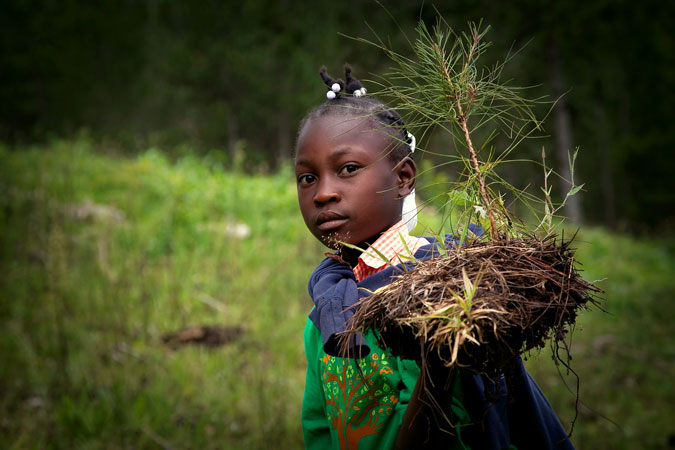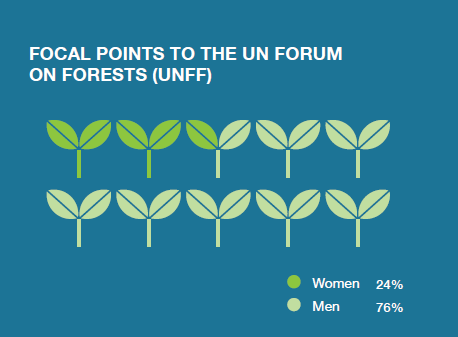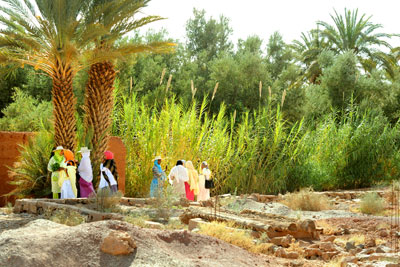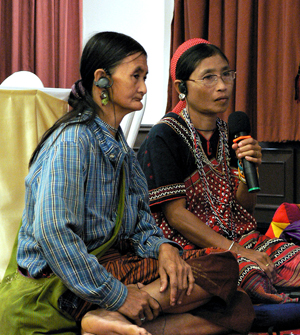SDG 15: Protect, restore and promote sustainable use of terrestrial ecosystems, sustainably manage forests, combat desertification, and halt and reverse land degradation and halt biodiversity loss

Targets
- By 2020, ensure the conservation, restoration and sustainable use of terrestrial and inland freshwater ecosystems and their services, in particular forests, wetlands, mountains and drylands, in line with obligations under international agreements.
- By 2020, promote the implementation of sustainable management of all types of forests, halt deforestation, restore degraded forests and substantially increase afforestation and reforestation globally.
- By 2030, combat desertification, restore degraded land and soil, including land affected by desertification, drought and floods, and strive to achieve a land degradation-neutral world.
- By 2030, ensure the conservation of mountain ecosystems, including their biodiversity, in order to enhance their capacity to provide benefits that are essential for sustainable development.
- Take urgent and significant action to reduce the degradation of natural habitats, halt the loss of biodiversity and, by 2020, protect and prevent the extinction of threatened species.
- Promote fair and equitable sharing of the benefits arising from the utilization of genetic resources and promote appropriate access to such resources, as internationally agreed.
- Take urgent action to end poaching and trafficking of protected species of flora and fauna and address both demand and supply of illegal wildlife products.
- By 2020, introduce measures to prevent the introduction and significantly reduce the impact of invasive alien species on land and water ecosystems and control or eradicate the priority species.
- By 2020, integrate ecosystem and biodiversity values into national and local planning, development processes, poverty reduction strategies and accounts.
- Mobilize and significantly increase financial resources from all sources to conserve and sustainably use biodiversity and ecosystems.
- Mobilize significant resources from all sources and at all levels to finance sustainable forest management and provide adequate incentives to developing countries to advance such management, including for conservation and reforestation.
- Enhance global support for efforts to combat poaching and trafficking of protected species, including by increasing the capacity of local communities to pursue sustainable livelihood opportunities.
Globally, forests have been cut at devastatingly fast rates, often for profits that bypass local communities. The felling of trees reduces carbon dioxide absorption and biodiversity, cutting links in the intricate web of life. Land use practices have led to land degradation and desertification, as have droughts, including those linked to climate change.
All of these patterns undercut resources that sustain environmental health and human well-being. Women can be among the first and most affected, often charged with making up shortfalls in food and fuel. Their limited ownership of land reduces their capacity to adapt to losses or make decisions about how land is used—for the benefit of themselves and the environment.
Despite these constraints, women play a critical role as stewards of the land, comprising much of the agricultural labour force in developing countries [1]. They may be primary collectors of resources such as wood for fuel, as well as wild foods and herbs for medicines. Their knowledge about traditional practices that are inherently sustainable, however, is often excluded from decisions about sustainable ecosystems.
This is a loss in terms of prospects for sustainable ecosystem use, which also depends on gender equality in all other dimensions—access to land, livelihoods and natural resources, and a say in how they are shared. Women, and indigenous women in particular, need to be included in decision-making on ecosystem use at all levels, as essential players in preserving our planet.
Stories:
In Moroccan oases, women watch plants and incomes grow
A group of women living in Moroccan oases have found a unique way to earn and income and mitigate the effects of climate change on their environment by cultivating medicinal and aromatic plants, using renewable energy.
Indigenous women leaders in Southeast Asia unite against development-based violence
Indigenous women from eight countries across Southeast Asia find common ground during a consultation on violence against indigenous women that is worsened or caused by economic development projects.
Notes
[1] FAO (2014), State of Food and Agriculture: Innovation in family farming, p. 35


